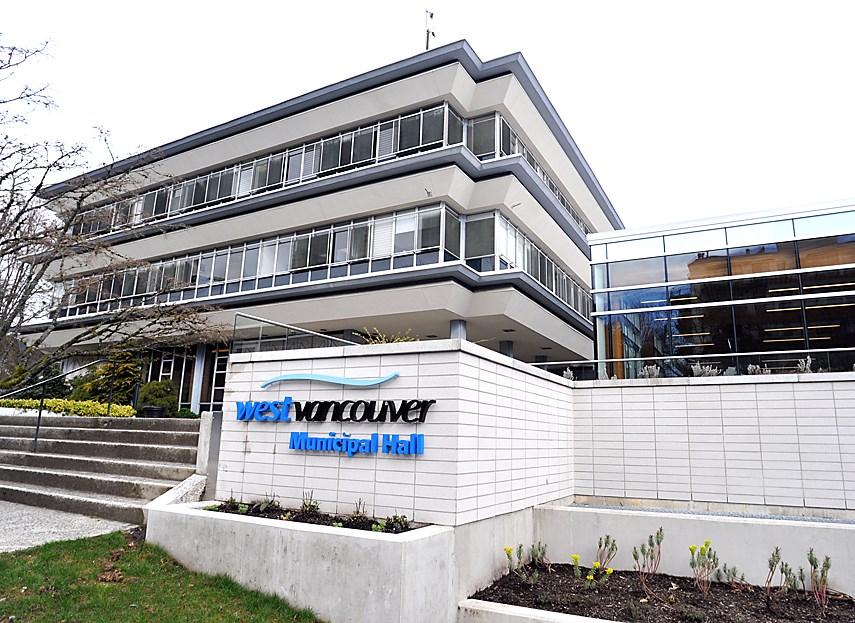West Vancouver taxpayers will have a municipal tax increase of just under 4 per cent next year, following a narrow vote in favour of the budget Monday night.
Councillors voted 4-3 to pass the budget bylaw, which calls for a 3.98 per cent tax increase, trimmed down from an earlier proposal for a 4.48 per cent increase.
The increase includes 2.5 per cent in an “asset levy” to maintain the district’s aging capital assets including buildings and parks and a 1.48 per cent increase towards operating expenses.
The increase will result in a tax increase of just over $200 a year on tax bill on an average West Vancouver home, assessed at about $2.9 million, bringing the total municipal tax bill to about $5,320. The tax increase for an average strata property will be $94 a year.
The municipality came to this year’s budget discussions still grappling with the impact of COVID-19 on last year’s budget. The pandemic left the municipality scrambling to cover a $7.4 million hole in the 2020 budget, mainly due to the cancellation of many revenue-producing recreation programs.
This year’s budget also generated its share of controversy.
While there was general support for maintaining the district’s assets, a plan to spend $1.4 million on 13 new staff positions to support work towards the district’s strategic plan was unpopular with many who provided public feedback through letters, a petition and online sessions.
“The top theme was taxes are already too high and should not be increase,” Isabel Gordon, the director of finance, told council. “There was considerable opposition to adding staff.”
Those comments were echoed in some public comments at Monday night’s meeting.
Graham McIsaac of the Ambleside Dundarave Residents Association said increasing taxes would add stress to already tapped-out taxpayers, adding residents are “overwhelmingly in opposition” to the increase.
“There is only one taxpayer and we are not bottomless pits,” he said.
Others, like Brent Peters, spoke in support of the budget.
“Everybody wants to live in paradise but a lot of people don’t want to pay for it,” he said. “That’s just not reality.”
“We’re the wealthiest municipality in the country,” said John Miller. “We should be setting an example not bleating about not having enough money.”
Councillor Peter Lambur led the charge against the budget, suggesting that there should be zero increase to taxes supporting operating costs.
The tax burden falls primarily on 13,000 homeowners and “many residents feel rightly or wrongly that they’re not getting value for their taxes,” he said. The district shouldn’t hire more permanent staff but could hire consultants on contract if needed, he suggested. West Van shouldn’t ask residents to pay for more staff unless the district finds another revenue stream, he said.
Both councillors Marcus Wong and Sharon Thompson said they felt concerned more residents were choosing to defer their taxes.
Thompson added she felt the budget process was rushed.
But other councillors said they were satisfied.
Coun. Bill Soprovich said in the past he support zero tax increases but no longer believes that is the right approach. Soprovich pointed to investments in infrastructure like the Eagle Lake filtration plant, and installation of water metres as things the district can be proud of. “All of these things are not free. They cost money,” he said.
Councillor Craig Cameron said given how the district’s revenues have “cratered” during COVID, the budget is remarkable.
“I don’t think it’s an unreasonable ask objectively,” he said.
Councillor Nora Gambioli agreed, while raising concerns about the “combative” tone some opposed to the tax increase have taken.
Mayor Mary-Ann Booth said she’s happy to support the budget, adding staff has already found significant savings by going through the budget with a fine-tooth comb.
The $1.4 million to be spent on new staff positions will be offset by $778,000 in savings identified through the budget process and $650,000 in revenue from new construction, according to staff.
The 1.48 per cent increase in taxes to support operational costs is also below that of most Lower Mainland municipalities, which range from two to five per cent, Booth pointed out.
“I haven’t heard of one municipality that’s coming in with a zero percent increase,” she said. “It’s not possible. We’ve tried it. It hasn’t worked.”
The budget passed with Booth, Cameron, Soprovich and Gambioli voting in favour and Lambur, Wong and Thompson opposed.



